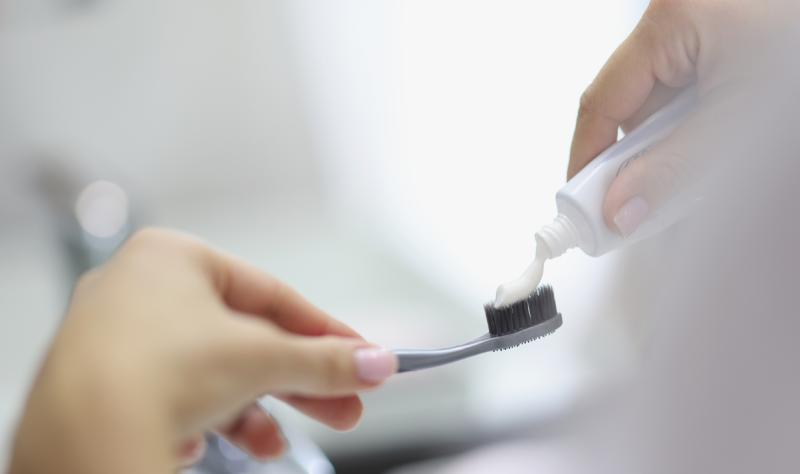Daily in-hospital toothbrushing may reduce pneumonia - University of Minnesota Twin Cities

A meta-analysis today in JAMA Internal Medicine suggests that daily tooth brushing in hospitalized patients lowers the risk of hospital-onset pneumonia. The effect was strongest in patients who were receiving mechanical ventilation.
Hospital-acquired pneumonia (HAP), is the most common nosocomial infection—and the deadliest. Found in about 1% of hospital patients, HAP is seen in both ventilated and non-ventilated patients.
HAP is believed to be triggered by microaspiration or macroaspiration of oral microbes, the authors said, but the use of mouthwashes with oral chlorhexidine has become a controversial way to reduce the microbial burden in the mouth. Rigorous toothbrushing may be a safer and more effective alternative to oral antiseptics.
Prevention guidelines, however, have traditionally not emphasized toothbrushing.
"Prevention guidelines, however, have traditionally not emphasized toothbrushing, and consequently, practices vary widely between hospitals," the authors wrote.
The authors reviewed 15 randomized clinical trials with an effective population size of 2,786 patients. The studies compared outcomes among hospitalized patients and oral care habits while in the hospital. All but one study focused on patients who were being treated in intensive care units (ICUs)
Toothbrushing was associated with a significantly lower risk for HAP (risk ratio [RR] 0.67; [95% confidence interval [CI], 0.56 to 0.81]) and ICU death (RR, 0.81; 95% CI, 0.69 to 0.95).
Shorter ICU stays
Toothbrushing was associated with significantly lower ventilator-associated pneumonia rates (RR, 0.68; [95% CI, 0.57 to 0.82], as well as shorter time to extubation (mean difference, 1.24 days; 95% CI, −2.42 to −0.06 days), and shorter ICU stay (mean difference, −1.78 days; 95% CI, −2.85 to −0.70 days).
One study included in the analysis showed an 85% reduction in non-ventilator HAP, but not a significant reduction in surgical units.
Of note, results were similar when toothbrushing was performed twice, three times, or four times daily. Toothbrushing made no significant difference on use of antibiotics, nor was there an association with reduced hospital length of stay.
"These findings suggest that routine toothbrushing should be considered an essential component of standard care in hospitalized patients, particularly in patients receiving invasive mechanical ventilation, for whom the evidence is strongest, to prevent pneumonia and lower mortality rates." the authors wrote.
In a commentary on the study in the same journal, Rupak Datta, MD, PhD, writes, "This study represents an exciting contribution to infection prevention and reinforces the notion that routine toothbrushing is an essential component of standard of care in ventilated patients.
"However, there is still uncertainty regarding NV [non-ventilator]-HAP. The investigators could only identify 2 studies with nonventilated patients that met inclusion criteria."
Comments
Post a Comment